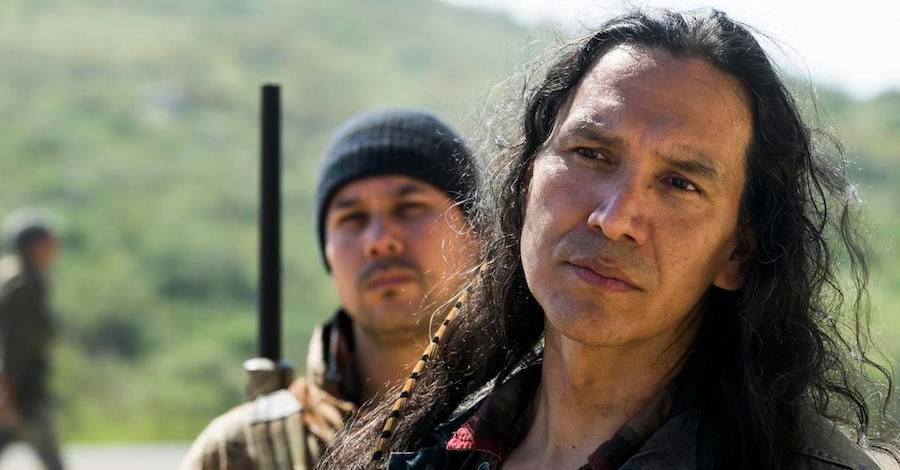As a TV show inches closer to its finale -- midseason or otherwise -- it's natural for the story to start moving faster. Even if a season breaks or ends on a cliffhanger, there still needs to be some sense of resolution. Seed can be a useful tool in pushing characters towards this sort of natural stopping point.
In the midseason finale of Fear the Walking Dead, which unfolds in two parts, that breakneck pace makes for some of the most riveting action sequences of the current season: Half-scalpings, anthrax attacks, and gunplay all have a place in the two-hour stretch as the war between Otto's ranch and Walker's people comes to a head. Of all of this year's episodes, it's the one that's most effective in its genre elements -- and there are barely even any zombies in it. As a piece of gritty action-horror storytelling, it satisfies -- right up until Nick makes the decision to shoot Jeremiah point blank and give the Clarks more power at the ranch.
But the accelerated pace also means accelerated character development; people acting in ways that are rushed or just plain confusing. The biggest victim of this is Madison. As I mentioned last week, it's interesting to see her make so many morally questionable decisions to provide her family with a safe place to live, including being complicit in several of Troy's murders. But it's also strange to see her go along with everything for so long when there's an easier way out. As Caitlin PenzeyMoog pointed out in her review for The A.V. Club, it would make more sense for Madison to go to the side of the Native Americans, especially as she continues to learn about the racism at Jeremiah's core. Why does she put up with it for so long?
Granted, by the time Nick pulls the trigger in their final confrontation with the ranch owner, we see where the Clarks' hearts lie. But it's not in Madison's character to wait so long and commit (or at least contribute to) so many acts of atrocities before doing so. She's usually able to make faster decisions when it comes to seeing both sides of a conflict.
Then there's the problem of adding Ofelia back into the mix. While it makes sense for her to go to Walker's side after being left for dead by Jeremiah, her return still fulfills the tired trope I criticized back in "100." In the Walking Dead universe, trying to fool the audience that someone's dead when they're not no longer works. Ofelia's return should have been a jolting surprise, and instead, it lands with a thud and ends up feeling just as rushed as the rest of the characters' respective evolutions. In fact, the only story element that takes its time is Strand's rediscovery and subsequent torching of his boat. But that still feels superfluous to the rest of the plot since he's been so separate from everyone else for most of this season.
That probably sounds more negative than I actually feel about "Children of Wrath" and "The Unveiling." As I said, it's a satisfying stopping point in terms of plotting, action sequences, and where it looks like the story's headed next. It would be just a bit more effective if both the story and the characters moved at a more logical pace.

